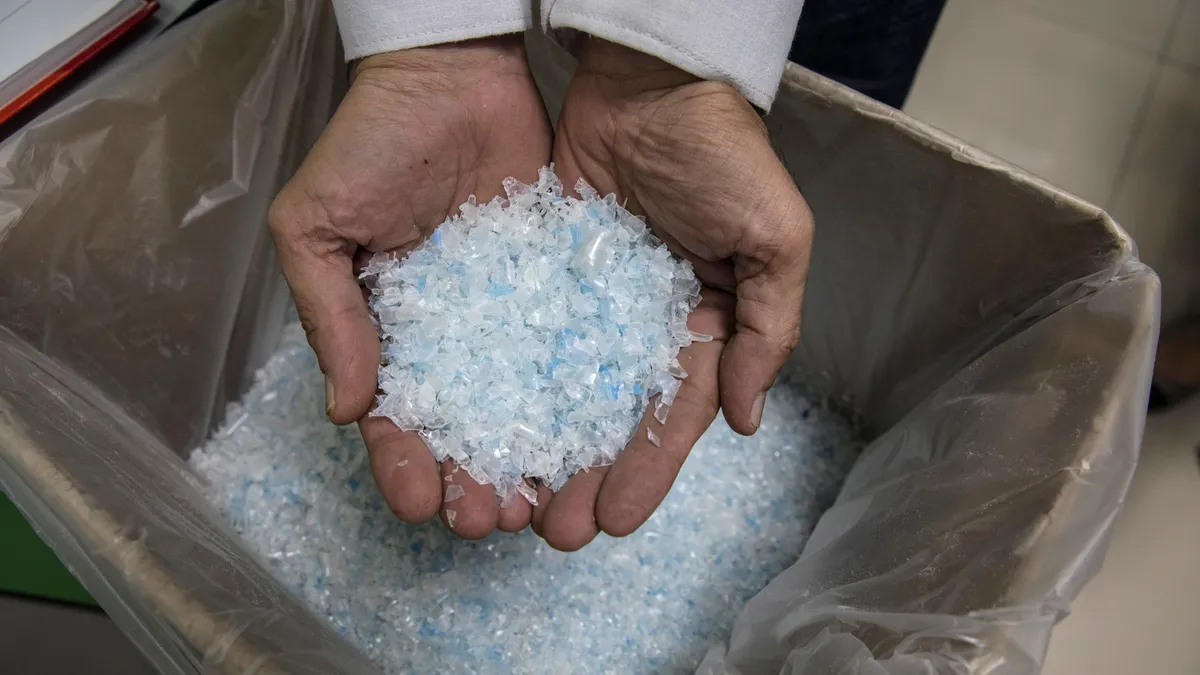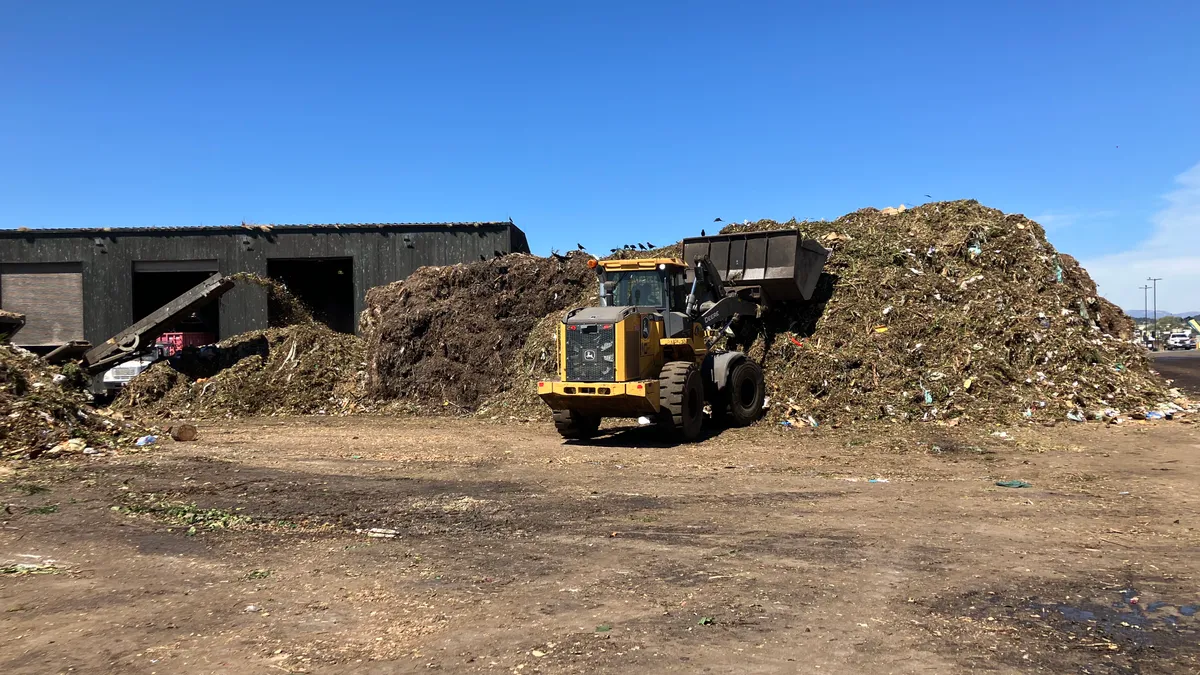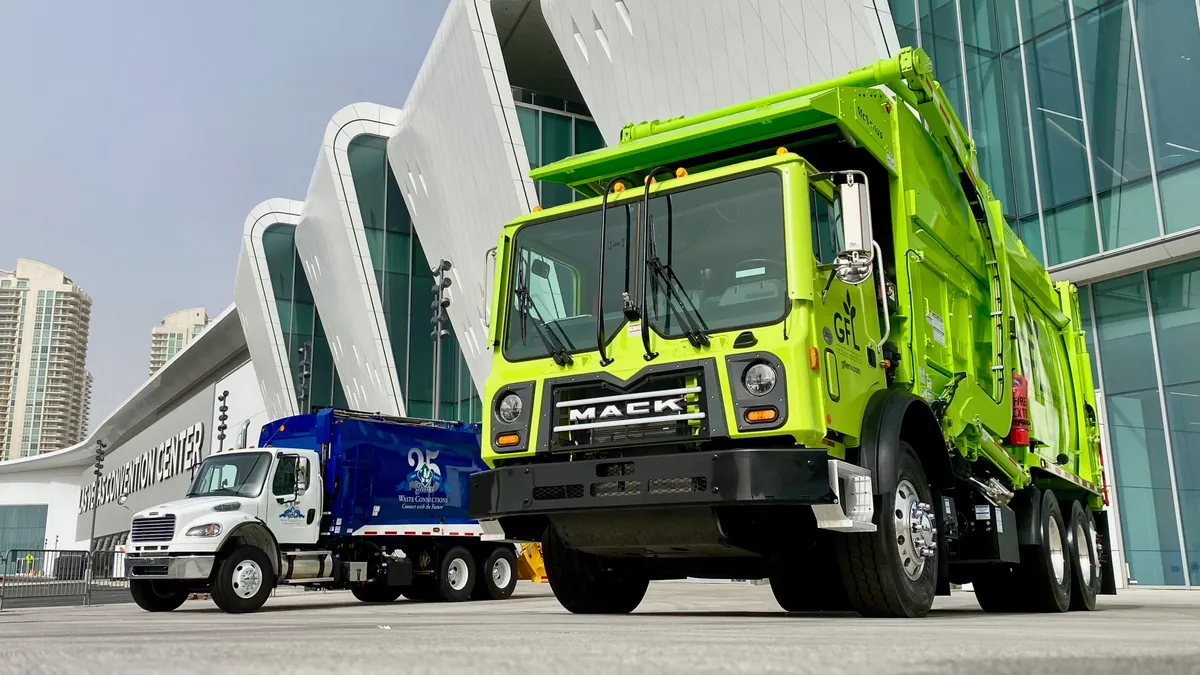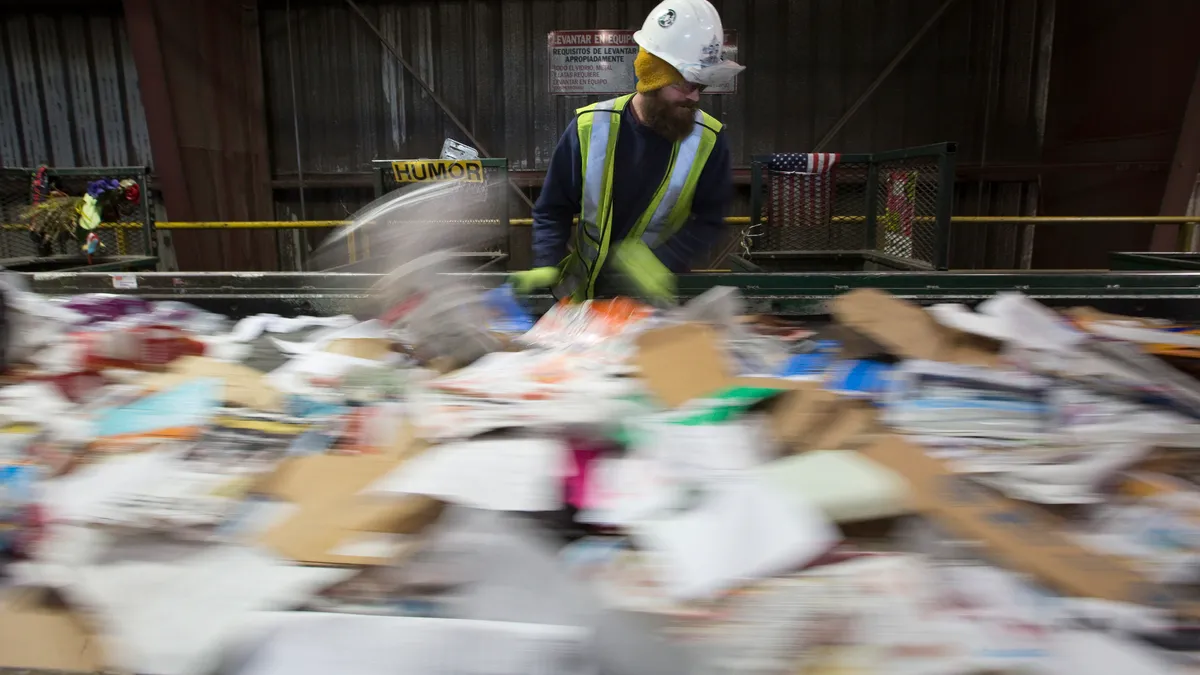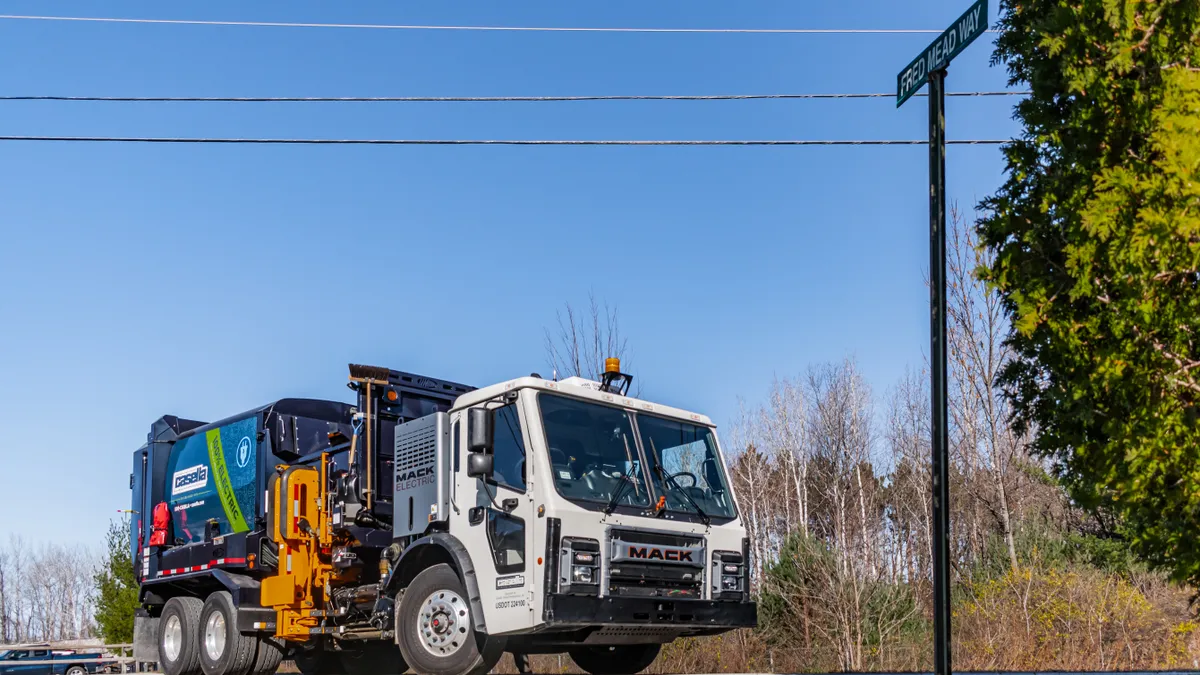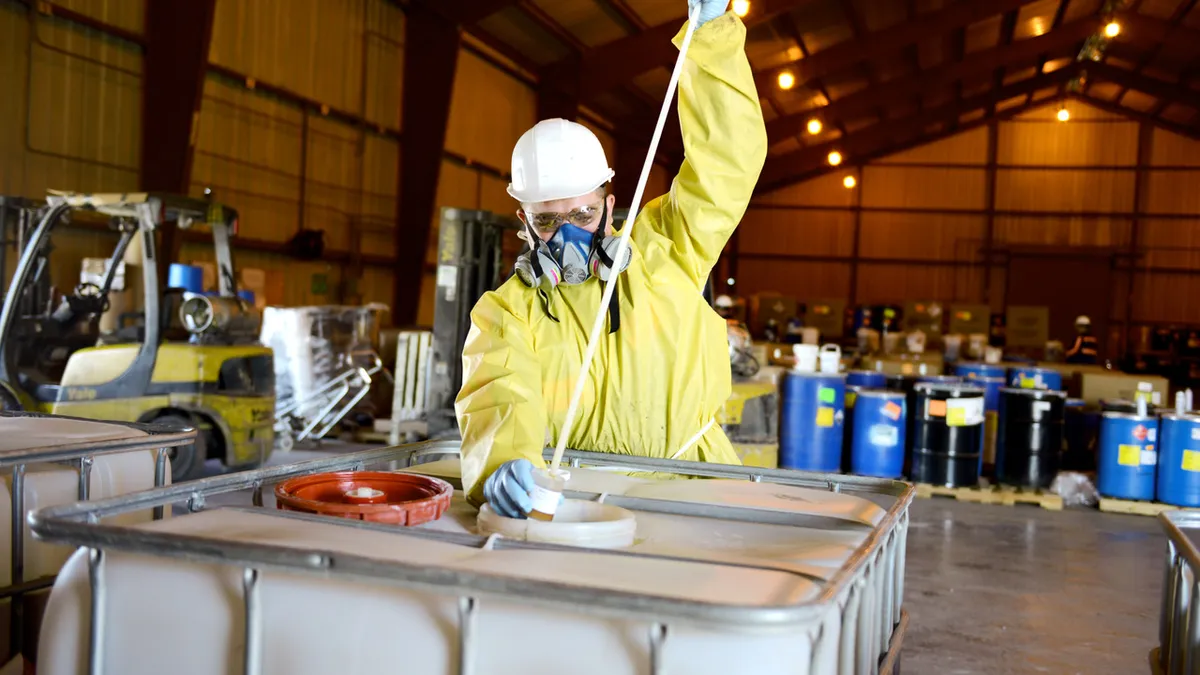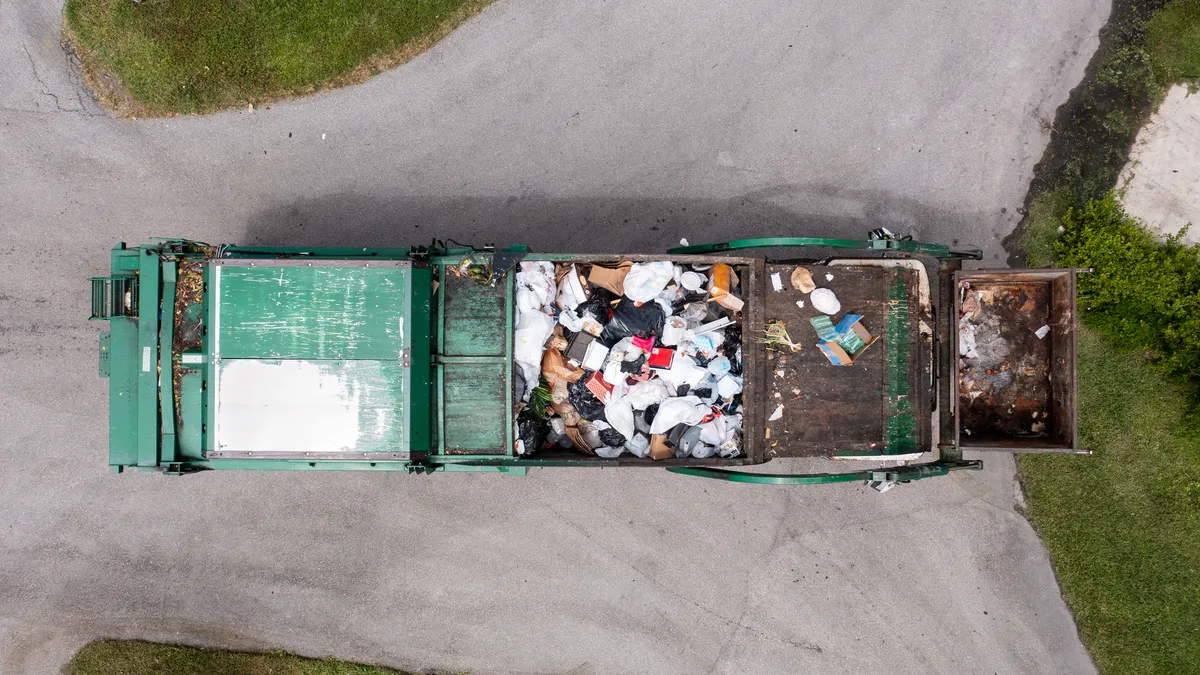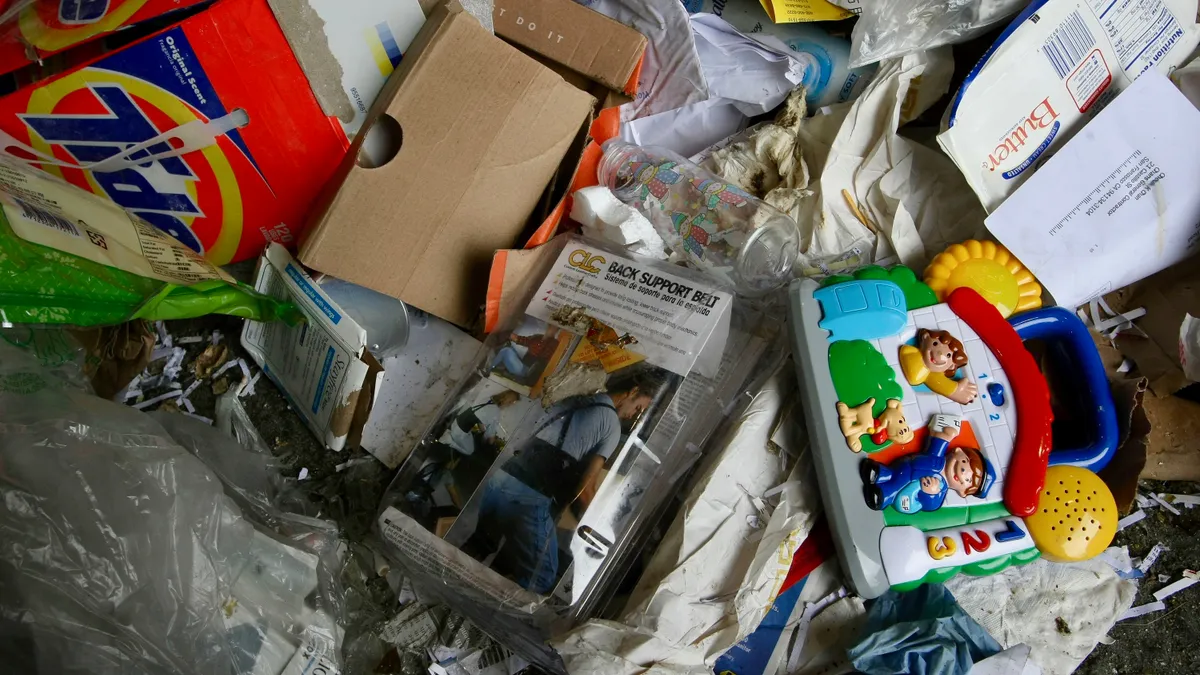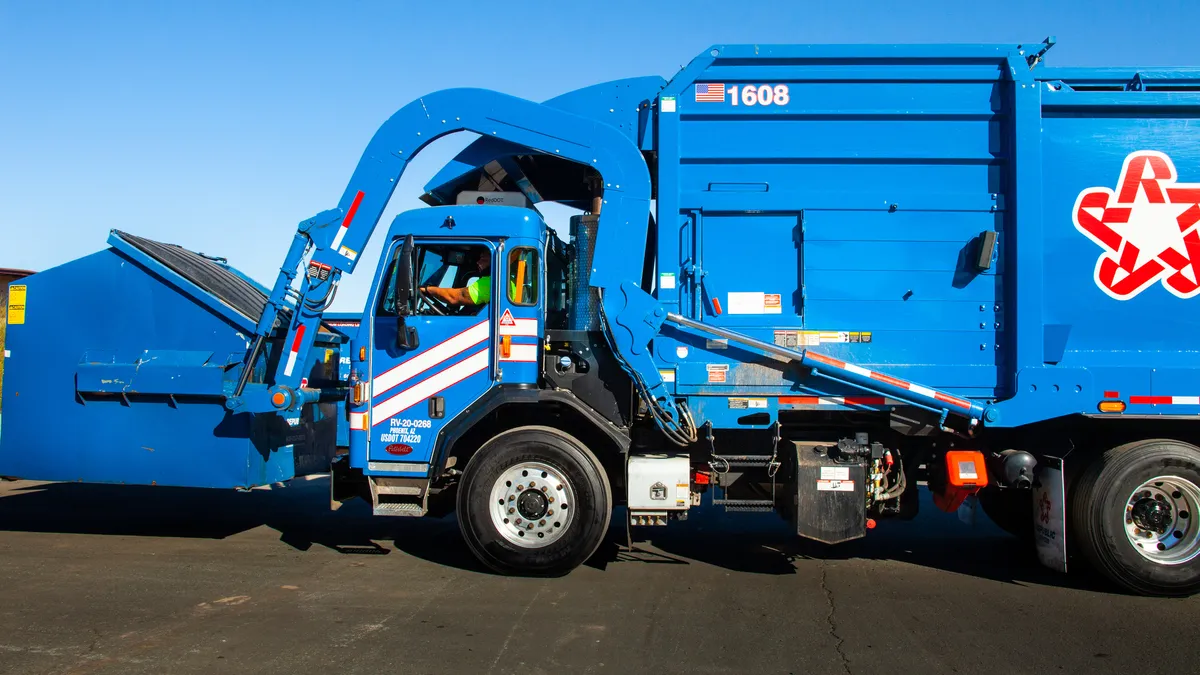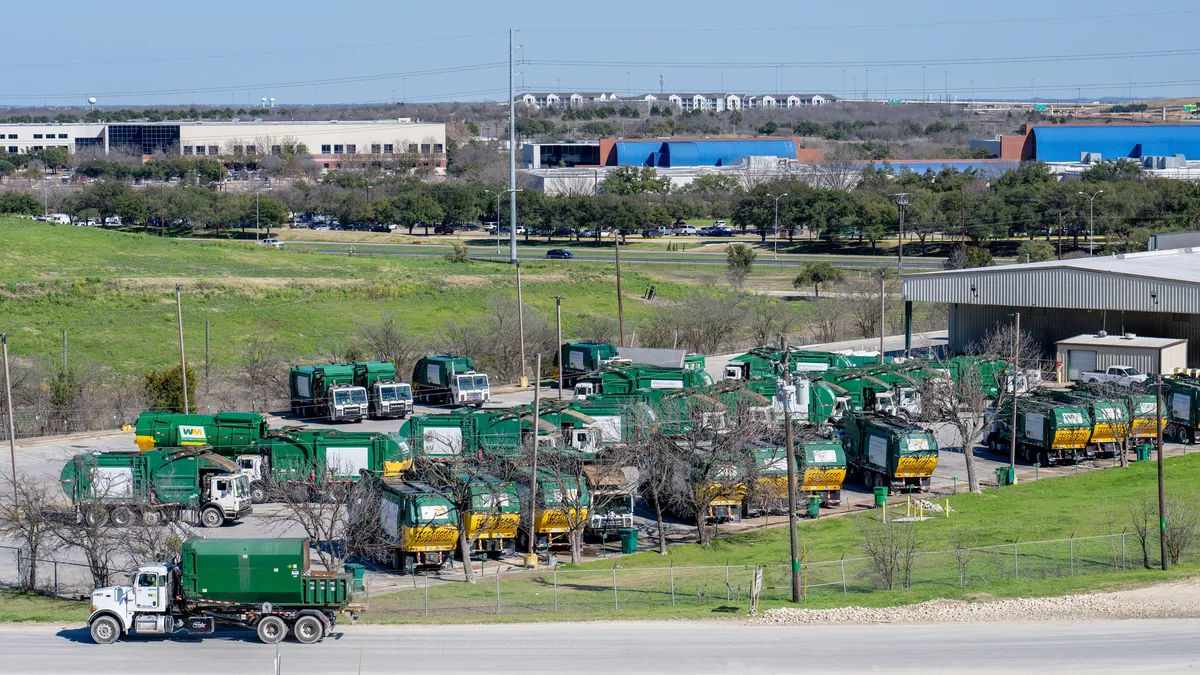Strong markets for recyclable materials are an important facet of improving recycling access and infrastructure, said speakers at a webinar last week hosted by the Southeast Recycling Development Council. They discussed how both fledgling and established market development programs can influence local recycling systems and encouraged cities and states to consider creating their own market development initiatives.
Here are three takeaways from the discussion.
Renewed federal interest in recycling markets could help launch new development initiatives
There’s “incredible opportunity” for states and localities to launch new recycling market development programs, said Kyla Fisher, program manager for AMERIPEN. It’s been five years since National Sword, China’s policy that restricted imports of most recycled materials, and the U.S. recycling industry is now bolstering domestic markets.
The U.S. EPA is also taking a renewed interest in the ways state market development programs can help the U.S. meet its goals outlined in the National Recycling Strategy to achieve a 50% recycling rate by 2030. The EPA’s strategy suggests conducting market development workshops and including rural and regional entities that can help create opportunities on a smaller scale.
The EPA’s last notable focus on the issue was in the 1990s when the EPA rolled out its “Recycling Means Business” initiative centered on job creation in the recycling industry, which resulted in “some pretty robust programs,” Fisher said.
AMERIPEN has a recycling market development task force, as well as a best practices guide for states and localities interested in launching such programs. There’s no single approach for creating the right program because each region has different markets and opportunities, she said.
“Focus on your organizational strengths, and then find the partners to help you do the rest. You can’t do it all,” said Fisher.
Successful programs and development agencies, such as Goodwill’s partnerships in Michigan and South Carolina’s state market development team have one thing in common: “you need to find out who's in your state that wants to support this work, or that needs this type of work and maybe doesn't quite understand it. Bring them to the table and have a conversation,” she said.
South Carolina’s program prioritizes direct business relationships
South Carolina’s Recycling Market Development program is notable in the United States because it’s been operating for more than 30 years as part of the state’s Department of Commerce. That gives it the advantage of being able to connect South Carolina businesses to numerous recycling companies in the state, said Anna DeLage, recycling market development manager.
The program promotes the economic benefits of recycling by encouraging businesses to use more recycled material, educating residents on recycling practices and connecting recyclers and processors to end markets.
Scaling the supply and quality of recycled materials available for businesses to use has been an ongoing process, she said. Back in 1993, the state had just a “handful” of processors. Today there are more than 300 recycling-related businesses, including four recycled content paper mills.
Sustainability commitments from major brands such as Volvo and Google are driving a lot of the state’s circular economy initiatives, and in the last 18 months companies of all sizes have begun voicing more interest in making their companies more sustainable, she said.
“When we’re out talking to manufacturers, one of the questions we’re asking is, ‘do you have any recycling needs, do you have any opportunities where you're looking to increase your sustainability on site?’ Those referrals are then piped back to the Recycling Market Development team, and we're able to make connections right away,” said DeLage.
Leveraging partnerships can turn thrifted finds into new products
Donations to thrift stores that can’t be sold often end up in landfills. To reduce waste, Goodwill Industries of West Michigan has partnered with several companies to turn hard-to-sell items into new products, said Business Development Director Nick Carlson.
Goodwill’s store in Muskegon, Michigan, diverted 69% of its donated material from disposal last year, meaning employees either sold the items in the store or online, found a buyer elsewhere, recycled the materials or reused them in some other way. The store aims to reach an 80% diversion within the next two years, he said.
In recent years, the Goodwill location has focused on repurposing items creatively, said Carlson. Glass items that cannot be sold, particularly colored glass items, go through a tumbler system to create decorative sea glass Goodwill then packages and resells in its store.
Goodwill is also looking into donating the remaining glass to be used as a feedstock for road construction applications. The store is working with local universities to study how donated ceramic items could be ground down and added to the process, he said.
Obsolete wood and particle board furniture now goes to an Israeli company that grinds the items down to create new products, such as lamps and building material. “All those TV stands that everybody got rid of when we moved to flat screen TVs all came to Goodwill, and we couldn't sell them. A lot of them went to the landfill,” said Carlson. “But now what we're working on is being able to turn those into revenue-generating products.”
Goodwill of West Michigan receives about half a million pounds of mixed plastic items each year. Goodwill sorts out PP and PE plastics for its joint venture project with HydroBlox, a company that makes pavers and drain tile from mixed residential plastics.
“It’s been amazing to see these partnerships come together,” he said.



